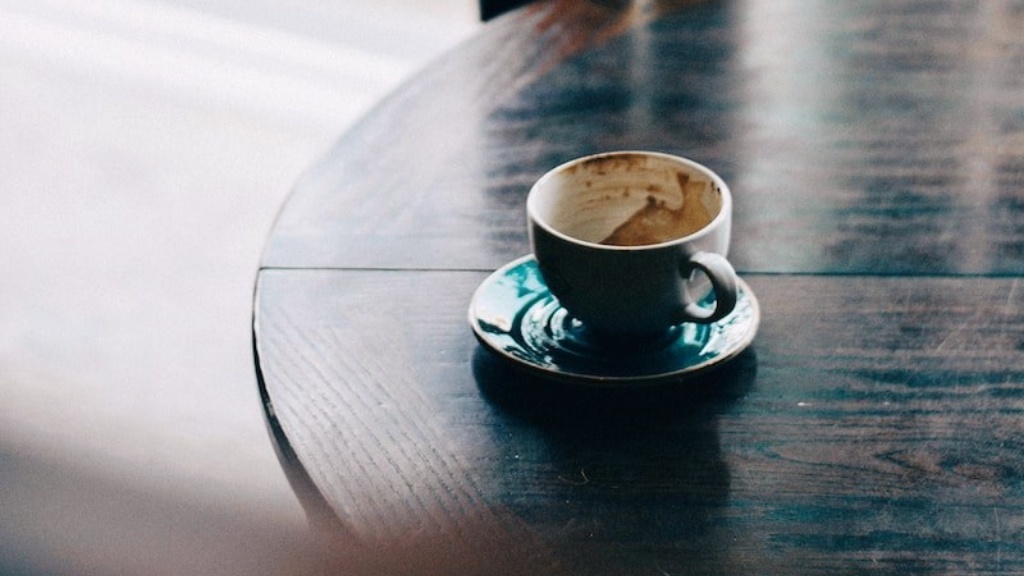Caffeine and Hives
Caffeine is known to inspire alertness and energy, and it’s even said to have health benefits. But could drinking coffee cause hives?
Hives, or urticaria, is a skin condition that causes red, itchy welts and can be caused by anything from allergic reactions to certain foods, medicines, and insect bites. Too much caffeine can also be an unlikely trigger in some cases.
Caffeine can be found in multiple beverages and many common foods, such as chocolate and energy drinks. According to the American Academy of Allergy, Asthma, and Immunology, sensitivity to caffeine can cause an immunological reaction, leading to hives.
Non-allergy skin reactions are becoming increasingly common and are caused by physiological – rather than immunological – factors. Though it isn’t yet well understood, it appears that drinking a large amount of coffee or other caffeinated beverages can cause hives in some people.
This is more common in people who are otherwise previously healthy, but it’s still unclear why some individuals are more sensitive to the effects of caffeine than others. Individuals who already have allergies or autoimmune conditions have a higher risk of having adverse reactions to caffeine.
A journal published by the American College of Allergy, Asthma, and Immunology reported that caffeine-induced hives are a rare occurrence, but they do happen. Symptoms include skin redness and itching, and they may last for several days, especially if caffeine is still consumed.
Though it has yet to be thoroughly investigated, anecdotal evidence suggests that caffeine can disrupt histamine levels in the body, and this may in turn increase the susceptibility to hives and other skin reactions. Histamine is a neurotransmitter, and it typically works to protect the body from infection. But too much histamine can cause inflammation, itching and swelling.
Although drinking coffee may cause hives in some people, for many of us, it’s perfectly safe. If you’re particularly sensitive to caffeine, then it’s important to limit your caffeine intake, or avoiding it all together. Depending on the cause and symptoms, your doctor may recommend anti-allergy medications and antihistamines.
Caffeinated Beverages
There are multiple caffeinated beverages are popular today, including coffee, tea, and energy drinks. Depending on their ingredients, the caffeine content of these drinks can vary greatly. Coffee, for instance, contains higher amounts of caffeine compared to green tea, while energy drinks are much higher.
Caffeinated beverages can have a variety of health benefits, such as improved mental performance, increased alertness, and improved mood, as well as increased energy levels. Some studies suggest that coffee consumption may also reduce the risk of type 2 diabetes, Parkinson’s, and even certain types of cancer.
Despite its potential benefits, caffeine consumption may still result in adverse effects, such as anxiety, palpitations, and sleeplessness. To avoid potential health risks, the World Health Organization recommends that adults consume no more than 400mg of caffeine per day.
That’s about 4 cups of coffee or 10 cans of energy drinks in 24 hours. The amount of caffeine you consume should be based on your individual reactions to caffeine and medical history.
Caffeine Intolerance Symptoms
An adverse reaction to caffeine is known as caffeine intolerance. Symptoms of caffeine intolerance can vary from mild to severe, and they may appear after consuming even very small amounts of caffeine. Common symptoms include headache, fatigue, diarrhea, and nausea.
Hives, initially after consuming caffeinated beverages, can also develop. Hives typically appear as red, itchy welts, and they may last anywhere from a few hours to several days. Unfortunately, hives are also often accompanied by other symptoms such as swelling and difficulty breathing.
If you’re experiencing any of these symptoms, particularly hives, after drinking caffeinated beverages, then it may be best to reduce or eliminate your caffeine intake. It’s also important to consult your doctor or an allergy specialist to rule out any other potential causes for your symptoms.
Treating Caffeine Allergies
If you’re allergic or sensitive to caffeine, then treating it is relatively straightforward. The first and most obvious step is to eliminate caffeine from your diet, particularly if you’re experiencing symptoms such as hives. This will require avoiding caffeinated beverages, such as coffee and energy drinks.
It’s also important to know that caffeine is found in a variety of other products, such as certain medications and even processed food. So even if you don’t drink caffeinated beverages, you still may need to eliminate other sources of caffeine from your diet.
There are also a variety of treatment options for managing the symptoms of caffeine intolerance or allergies. Your doctor may recommend over-the-counter or prescription antihistamines to help reduce itching and inflammation. Your doctor may also prescribe steroids or other medications to reduce inflammation and alleviate the symptoms of hives.
Lifestyle Changes
Along with medications, lifestyle changes can also be beneficial. Limiting exposure to allergens, including pollen and dust, may reduce the likelihood of experiencing allergic reactions to caffeine. Adequate hydration and a healthy diet, particularly one that is rich in anti-inflammatory foods, may also help manage symptoms.
It is important to note that not everyone responds the same to caffeine. While some may experience hives and other symptoms, others may be perfectly fine drinking caffeinated beverages. Your individual response to caffeine will depend on several factors, including your body chemistry, medical history, and lifestyle.
Caffeine Sensitivity
Caffeine sensitivity is a complex issue and understanding the specific mechanisms behind it can be difficult. Generally speaking, caffeine sensitivity is when an individual experiences heightened or adverse reactions to caffeine that is normal for others.
Unfortunately, there is currently no single test to determine if someone is hypersensitive to caffeine. However, allergists and other medical professionals can perform various tests to help determine the cause of hives or other symptoms.
Additionally, there is no definitive consensus as to why some people are particularly sensitive to caffeine. However, the most popular theory suggests that it’s due to a genetic predisposition, a weakened immune system, or an underlying medical condition.
Caffeine Alternatives
If you’re sensitive to caffeine or have been diagnosed with an allergy, then it’s important to eliminate it from your diet. Fortunately, there are a wide range of caffeine-free beverages and foods that can provide the same energy boost without the adverse effects.
Herbal teas such as chamomile and lemon balm can provide mild stimulation, as can decaffeinated coffee. Additionally, energy drinks that have been specifically designed for people with caffeine sensitivities are now widely available.
Certain foods and supplements are also known to have energizing effects. These include matcha green tea, maca powder, and dark chocolate. Of course, it’s important to consult a doctor before adding any new food or supplement to your diet.
In conclusion, it may be possible for drinking coffee to cause hives in some people. To avoid adverse reactions, it’s important to monitor your caffeine consumption and limit your intake as much as possible. Additionally, there are a variety of caffeine-free alternatives that can provide the same energy boost without any of the potential risks.





